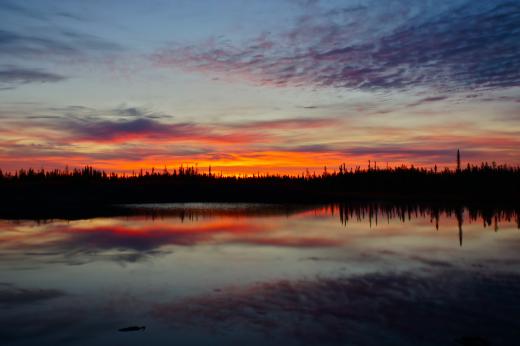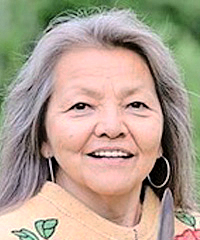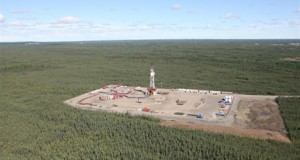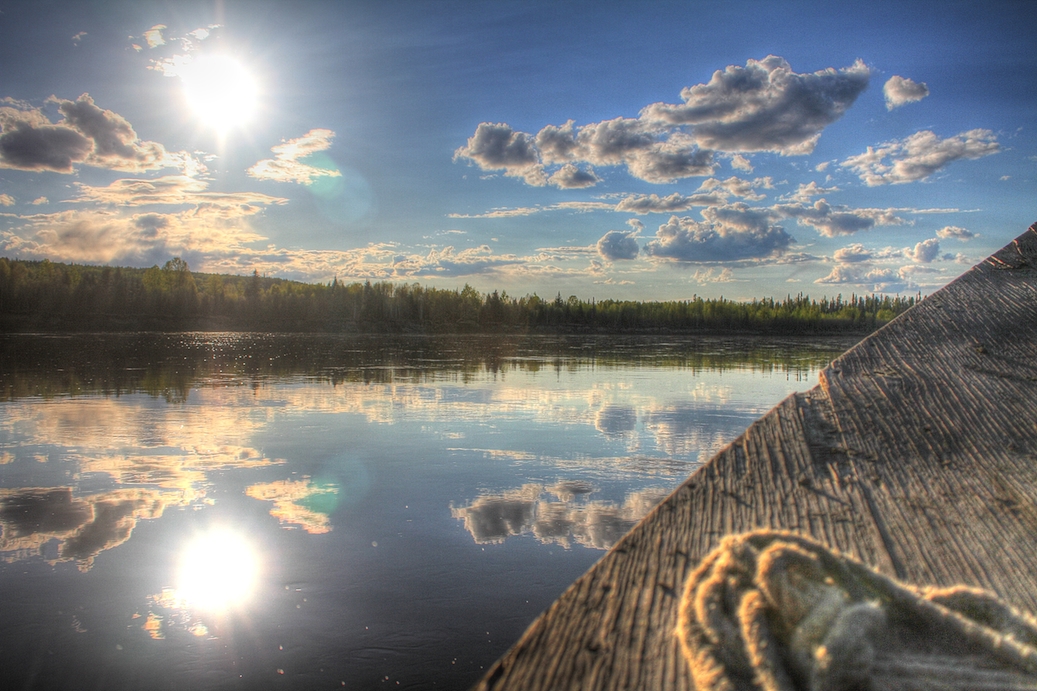First Nation wins legal challenge stopping water license for fracking in BC

FORT NELSON, BC / Treaty 8 Territory, Sept. 7, 2015 /CNW/ – Fort Nelson First Nation (FNFN) has won a major legal challenge against the BC government and Nexen Inc., an upstream oil and gas company. The first long-term water license granted in the Horn River Basin for shale gas fracking has been cancelled, effective immediately, by the Environmental Appeal Board (EAB).
The license, issued to Nexen in 2012, authorized the company to pump millions of cubic meters of water from Tsea Lake, a small lake in FNFN territory, each year until 2017.

FNFN Chief Liz Logan
“Granting this license was a major mistake by the Province,” said FNFN Chief Liz Logan. “Our members have always used the Tsea Lake area in our territory to hunt, trap, and live on the land. The company pumped water out of the lake, even during drought conditions. There were major impacts on the lake, fish, beavers, and surrounding environment. Water is a huge concern for us, and for all British Columbians. By approving this license, the Province demonstrated it is not protecting the public interest in water.” (See FNFN Slide Presentation here)
After three weeks of hearings involving expert reports, scientific literature, and other evidence, the EAB has rejected the license on two grounds:
- The EAB found that the science behind the license was fundamentally flawed in both concept and operation.
- The EAB found that the Province failed to consult FNFN in good faith and breached its duty to consider the potential impacts on FNFN.
The EAB said that BC government officials showed a lack of good faith in their dealings with FNFN on the license, and that the consultation process was “seriously flawed.” The EAB found that the Province breached its constitutional duty to consider the potential adverse effects on FNFN.
The EAB also rejected the Province’s conclusion that the license would have no significant environmental impacts, finding that the license was fundamentally flawed in concept and operation. It found that the company’s water withdrawal scheme was not supported by scientific theory or adequate data as it was based on incorrect, inadequate, and mistaken factual information and modelling results.

Nexen Tsea Lake Fracking Operation
“We want to work with the Province and industry on sustainable development in our territory, but we are being ignored,” said Chief Logan. “We have in the past, and are willing to do so moving forward, as long as our treaty rights are respected and the public interest in environmentally sustainable development is upheld.”
By cancelling the license, the EAB has set a precedent for future provincially supported fracking and LNG exports. Licenses will not be able to pass, unless the following standards are sufficiently met:
- meaningful consultation with FNFN and other affected First Nations on water and land use;
- basing natural resource decisions on valid scientific models and adequate data; and
- upholding the public interest in preserving BC’s lakes, rivers and land for future generations.
“This decision sends a clear message to the BC government and to the fracking industry that the LNG dream will not happen at the expense of our lakes, rivers, and treaty rights,” said Chief Logan.
The BC Environmental Appeal Board decision can be accessed at:
http://www.eab.gov.bc.ca/water/2012wat013c.pdf




